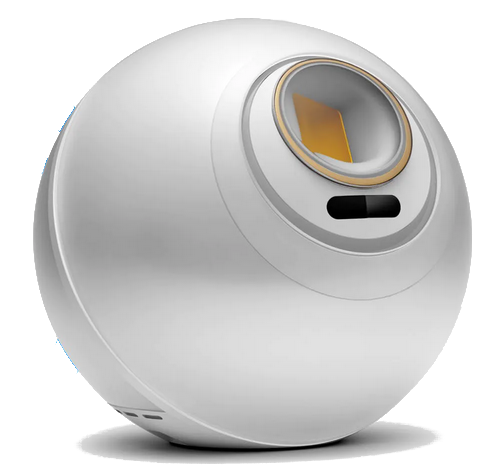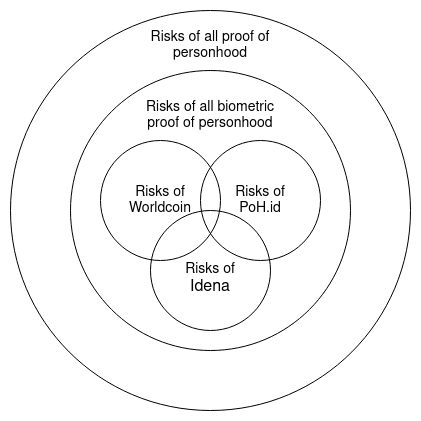There is something a bit off-putting about a computer demanding to know you are human.
From Mr. Buterin's website, July 24:
Special thanks to the Worldcoin team, the Proof of Humanity community and Andrew Miller for discussion.
One of the trickier, but potentially one of the most valuable, gadgets that people in the Ethereum community have been trying to build is a decentralized proof-of-personhood solution. Proof of personhood, aka the "unique-human problem", is a limited form of real-world identity that asserts that a given registered account is controlled by a real person (and a different real person from every other registered account), ideally without revealing which real person it is.
There have been a few efforts at tackling this problem: Proof of Humanity, BrightID, Idena and Circles come up as examples. Some of them come with their own applications (often a UBI token), and some have found use in Gitcoin Passport to verify which accounts are valid for quadratic voting. Zero-knowledge tech like Sismo adds privacy to many of these solutions. More recently, we have seen the rise of a much larger and more ambitious proof-of-personhood project: Worldcoin.
Worldcoin was co-founded by Sam Altman, who is best known for being the CEO of OpenAI. The philosophy behind the project is simple: AI is going to create a lot of abundance and wealth for humanity, but it also may kill very many people's jobs and make it almost impossible to tell who even is a human and not a bot, and so we need to plug that hole by (i) creating a really good proof-of-personhood system so that humans can prove that they actually are humans, and (ii) giving everyone a UBI. Worldcoin is unique in that it relies on highly sophisticated biometrics, scanning each user's iris using a piece of specialized hardware called "the Orb":

The goal is to produce a large number of these Orbs and widely distribute them around the world and put them in public places to make it easy for anyone to get an ID. To Worldcoin's credit, they have also committed to decentralize over time. At first, this means technical decentralization: being an L2 on Ethereum using the Optimism stack, and protecting users' privacy with ZK-SNARKs and other cryptographic techniques. Later on, it includes decentralizing governance of the system itself.
Worldcoin has been criticized for privacy and security concerns around the Orb, design issues in its "coin", and for ethical issues around some choices that the company has made. Some of the criticisms are highly specific, focusing on decisions made by the project that could easily have been made in another way - and indeed, that the Worldcoin project itself may be willing to change. Others, however, raise the more fundamental concern of whether or not biometrics - not just the eye-scanning biometrics of Worldcoin, but also the simpler face-video-uploads and verification games used in Proof of Humanity and Idena - are a good idea at all. And still others criticize proof of personhood in general. Risks include unavoidable privacy leaks, further erosion of people's ability to navigate the internet anonymously, coercion by authoritarian governments, and the potential impossibility of being secure at the same time as being decentralized.

This post will talk about these issues, and go through some arguments that can help you decide whether or not bowing down and scanning your eyes (or face, or voice, or...) before our new spherical overlords is a good idea, and whether or not the natural alternatives - either using social-graph-based proof of personhood or giving up on proof of personhood entirely - are any better.
What is proof of personhood and why is it important?....
....MUCH MORE